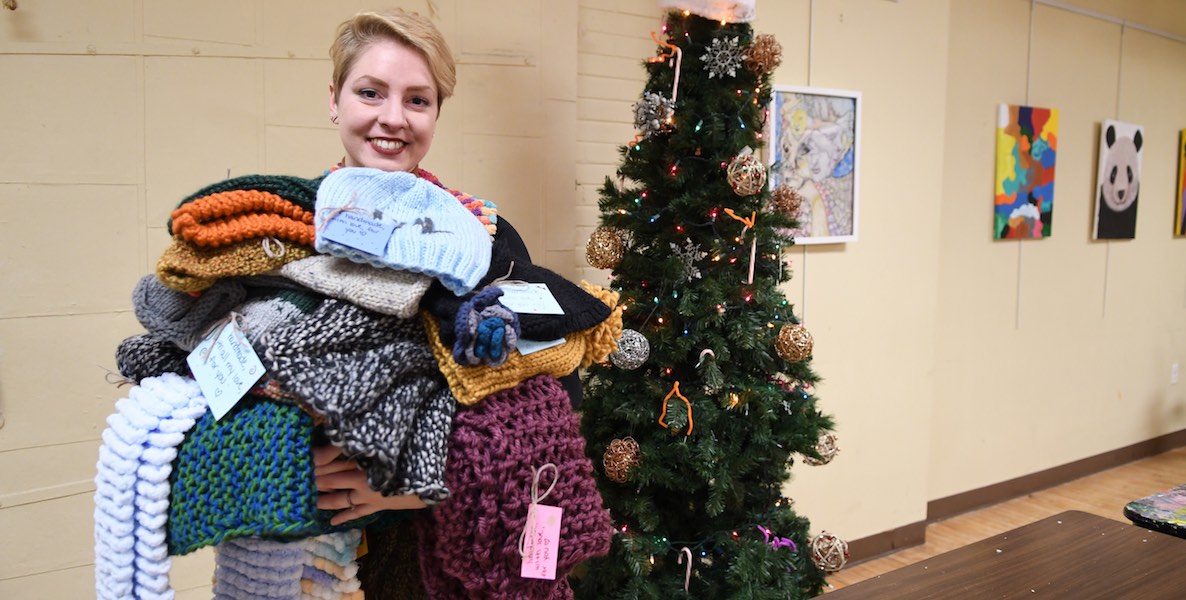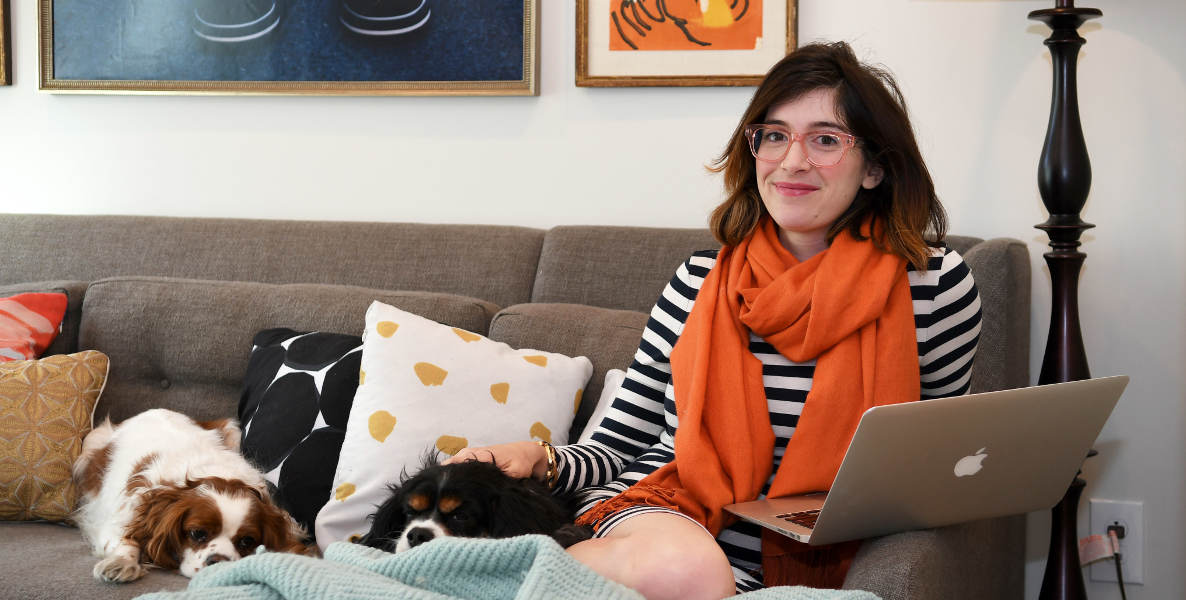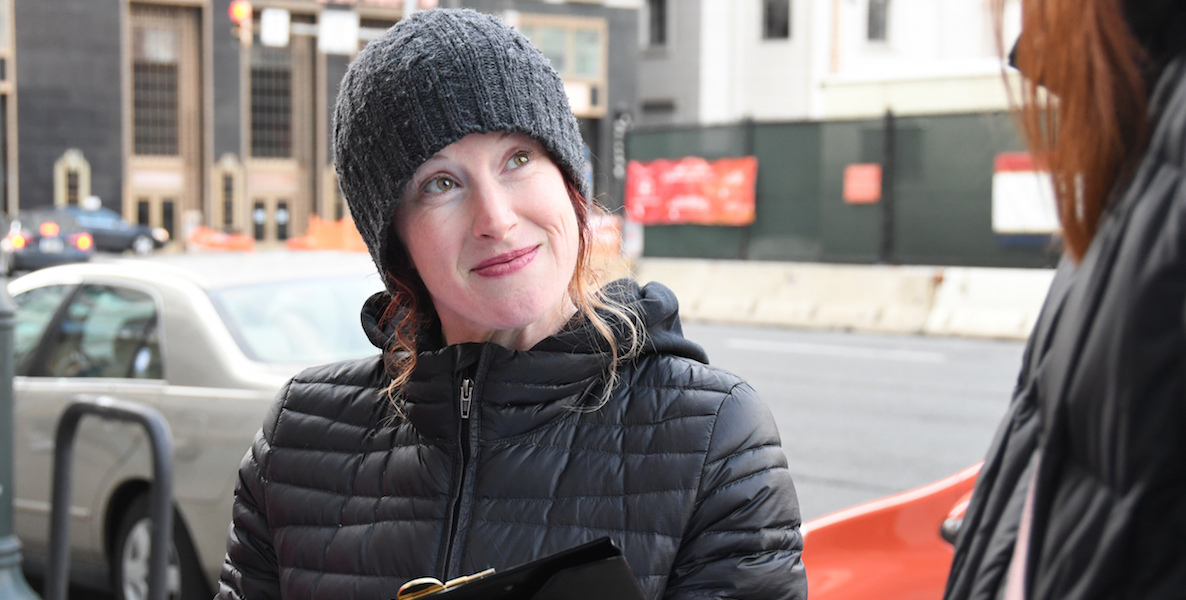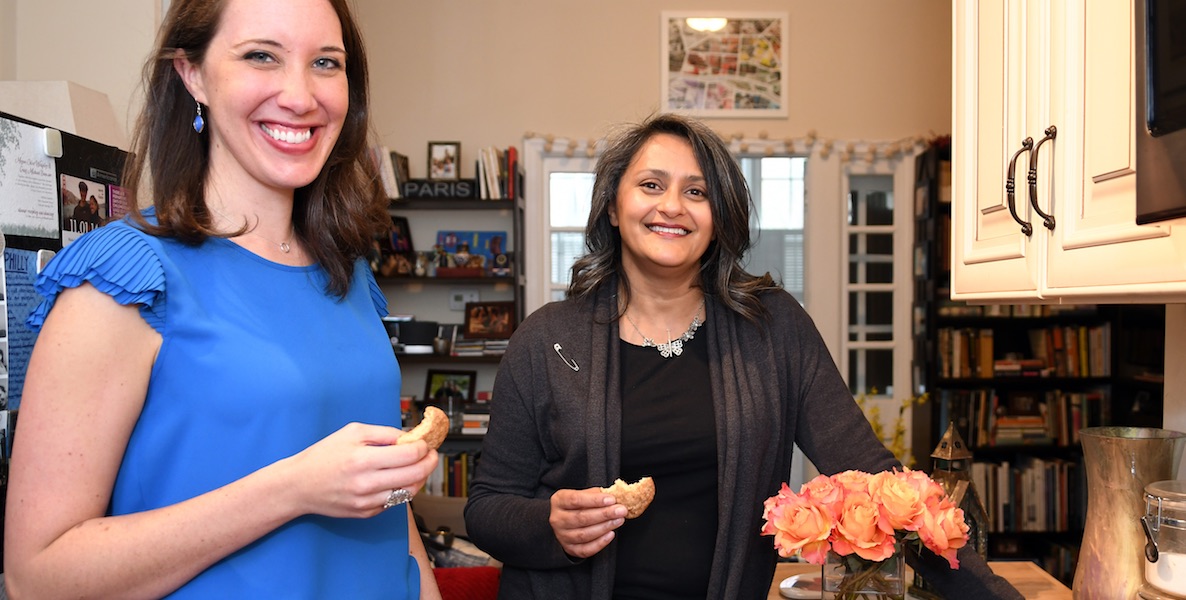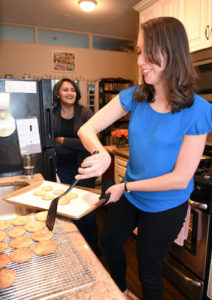 Two years ago, Molly Lester read an article online about an 8-year-old Philadelphia boy who was living in a homeless shelter and had never had a birthday cake.
Two years ago, Molly Lester read an article online about an 8-year-old Philadelphia boy who was living in a homeless shelter and had never had a birthday cake.
“It broke my heart,” she says. “I decided to do something.”
Lester, a 30-year-old architectural historian from Washington Square West, anonymously baked the boy a cake, and dropped it off at the shelter. She didn’t even wait to see his response; just knowing he was going to have a sweeter birthday was enough gratification for her.
But she didn’t want to stop there. Over the next two years, she baked and donated cakes, cookies, cupcakes and brownies to several organizations in need, finding them through cold emails she’d send out after work. “I baked for the Salvation Army a couple years ago,” she notes, “and got a lot of word-of-mouth contact through them.” (Lester’s speciality is cookies and cupcakes, she says, “mostly because they’re the ones I like to consume.”)
Then, last November happened. And Lester’s informal bake-a-thon took on more meaning—as a way to channel her grief over the presidential election results. In January, when President Trump signed executive orders banning refugees from certain Islamic countries, Lester baked for several refugee organizations, and dropped them off as a surprise. “Baking for me, just the act of it, relieves stress and is calming,” she says. “The fact that it’s physically calming and can impact people meaningfully is the catharsis part of it.”
Afterward, Lester asked to see if anyone wanted to join her—and so was launched the InKind Baking Project, a group effort to use dessert as a way of building community and peace. Bakers sign up to be a part of the InKind listserv, which Lester uses to circulate the requests for baked goods submitted through outreach on Facebook and emails to different refugee organizations. Individuals can claim requests, make the goods at home, then drop them off for recipients to enjoy.
So far, members of the project have baked for organizations that serve refugees, immigrants and the homeless—about 205 people total.
So far, members of the project have baked for organizations that serve refugees, immigrants and the homeless—about 205 people total, Lester says.
“When we leave something, we leave a little message to show that there’s a coalition of individuals behind it,” she says. “I don’t mind that it’s a little bit of an anonymous thing at this point. It’s not about me or the individual bakers.”
That the timing of the project was directly related to Trump’s actions against Muslims was no accident: For Lester, the executive order was an affront to her Christian faith.
“I would like this to be a gesture of everything my faith teaches me to do as far as welcoming the stranger,” she says. “As far as the community goes, I want it to be a different message of welcome and inclusion to people who are being excluded, oppressed and marginalized.”
There are currently 35 people on the InKind listserv, a number that Lester hopes will continue to grow.
“We all bake individually in our own homes for now,” she says. “But someday I foresee a group baking event of some kind.”
Header photo: In Kind Baking Project founder Molly Lester and Neeta McCulloc. All images by Sabina Louise Pierce


